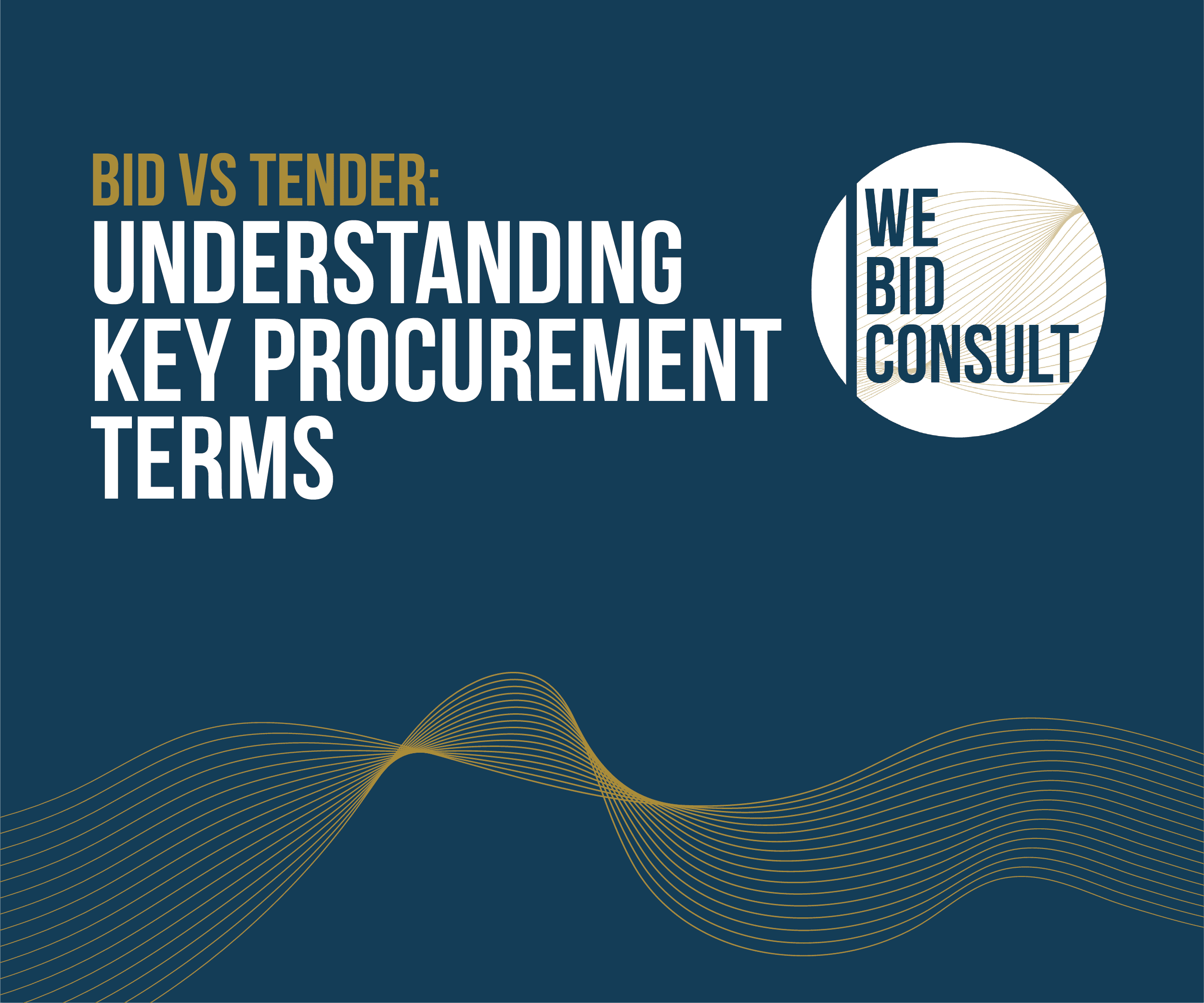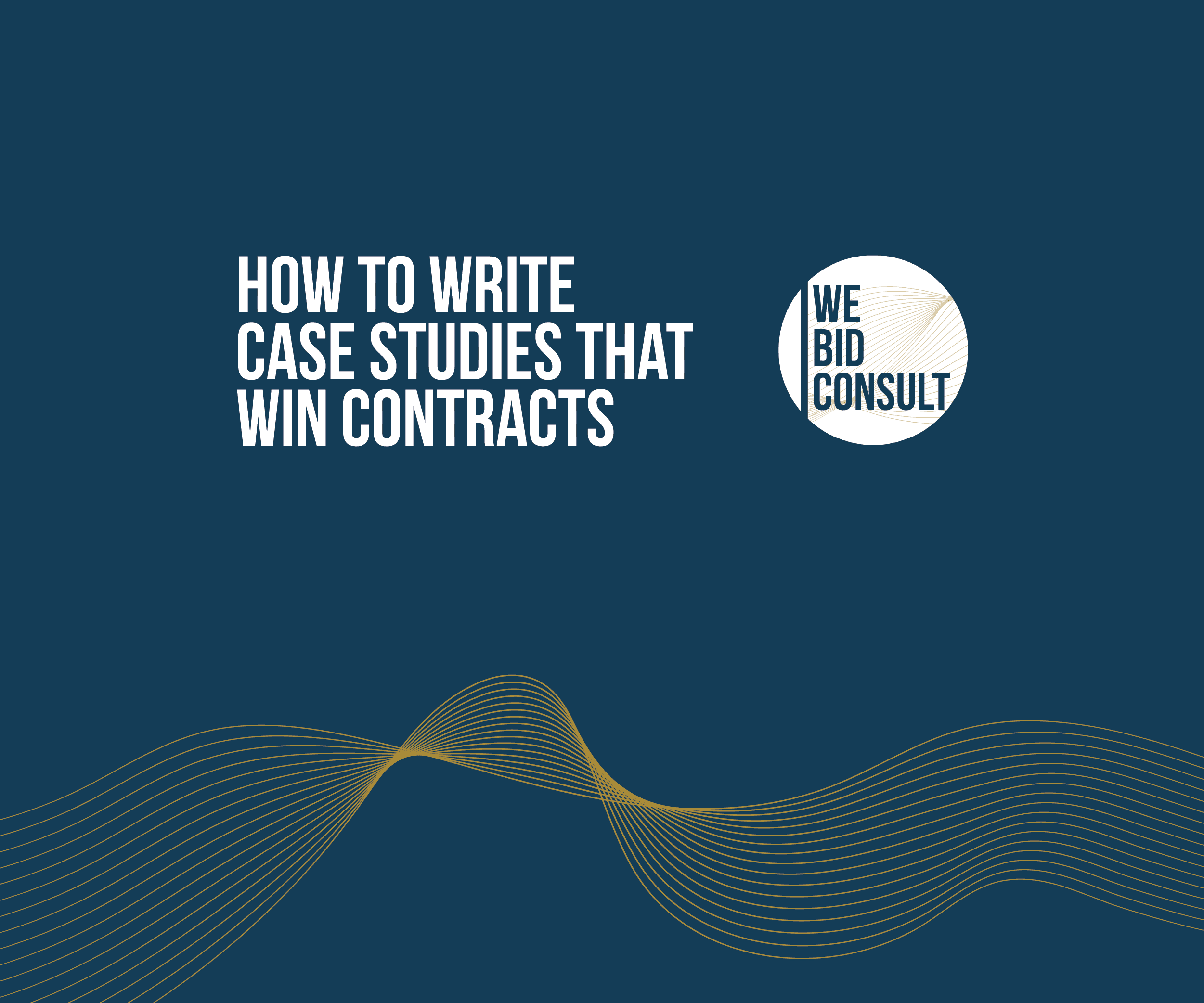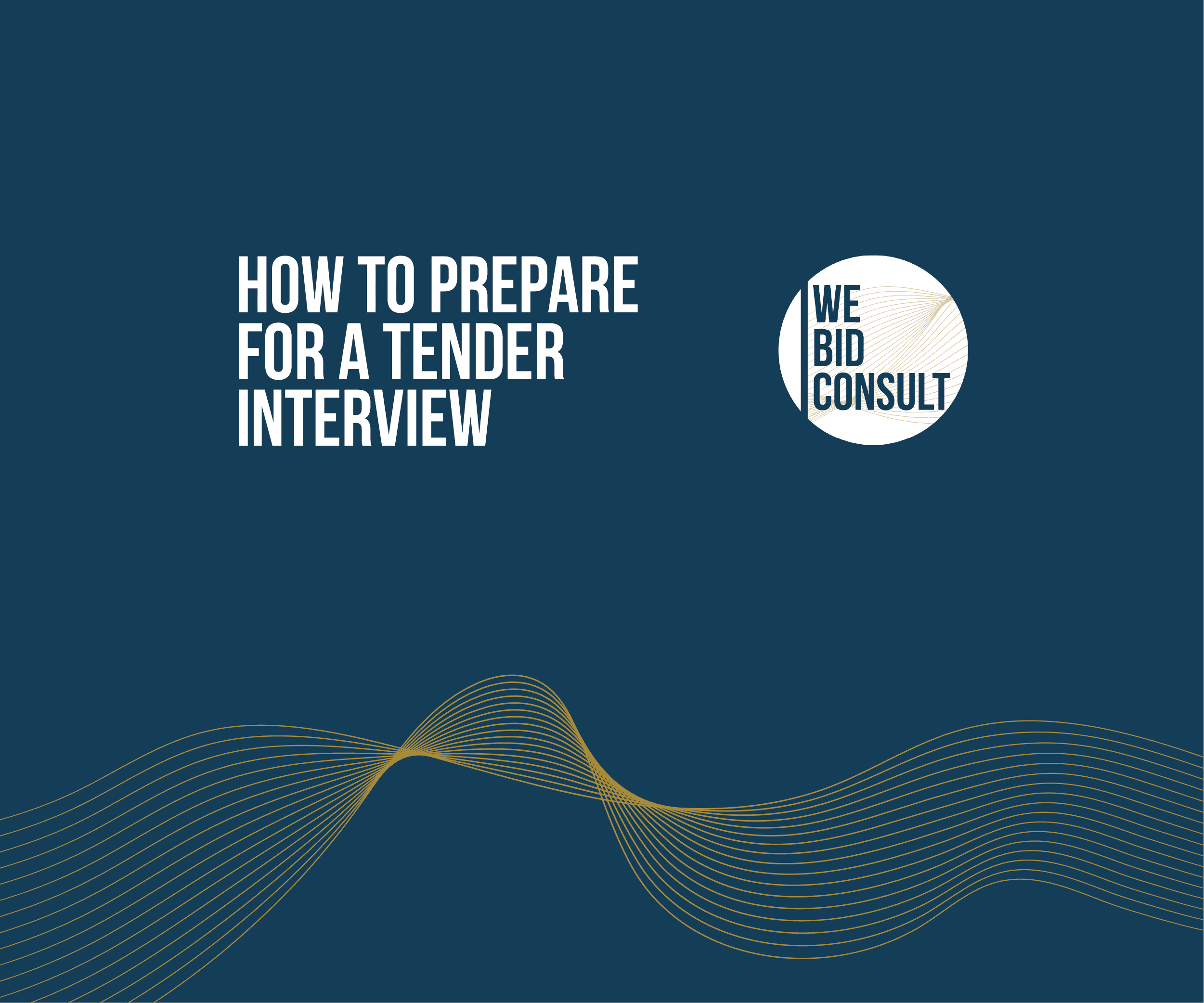Bid vs Tender: Understanding Key Procurement Terms

If you’re exploring new opportunities in the public sector, you may have come across the terms bid and tender. They’re often used side by side and sometimes even interchangeably, which can cause confusion, especially if you’re new to procurement.
While they’re closely linked, they don’t quite mean the same thing. This guide sets out to clarify the differences and give you confidence in navigating procurement terminology.
What is a tender?
A tender is the formal invitation from a buyer, typically a public sector organisation, asking suppliers to submit proposals for delivering a specific project, service, or product. It outlines the buyer’s requirements, evaluation criteria, and submission instructions.
Tenders are published as contract notices and may be labelled as Invitations to Tender (ITT), Requests for Quotation (RFQ), or Requests for Proposal (RFP), depending on the scope and format.
In simple terms, the tender is the opportunity being offered.
To explore the structure and purpose of an ITT in more detail, read our blog on Understanding Invitation to Tender (ITT).
What is a bid?
A bid is the supplier’s response to that opportunity. It is the written proposal that outlines how your organisation intends to meet the buyer’s requirements, demonstrating experience, approach, and value for money.
A well-structured bid may include:
- Delivery methodology and approach
- Technical capability and previous experience
- Evidence of quality assurance
- Pricing and cost breakdowns
- Commitments to social value and sustainability
The bid is your opportunity to show not just that you can do the work but that you understand the buyer’s objectives and can add value.
Want to know more about writing a successful bid? Read our 11 top tips on how to write the perfect bid.
Are the terms interchangeable?
They often are in informal use, but technically:
- The tender is the request for proposals
- The bid is the response submitted by the supplier
Understanding the difference can help you better navigate procurement documents and plan your submissions effectively.
What is a tender proposal?
The term tender proposal is simply another way of describing a bid. It refers to the full submission made by a supplier in response to a published tender opportunity. You may also hear terms like proposal, submission or offer. These all describe the supplier’s response to the tender.
Is a tenderer the same as a bidder?
Yes. A tenderer or bidder is any organisation that submits a formal response to a contract opportunity. The term used often depends on how the buyer refers to respondents in the documentation.
What’s the difference between a bid manager and a tender manager?
The titles are often used interchangeably. Both roles involve leading and coordinating the development of a competitive proposal from start to finish.
Key responsibilities usually include:
- Managing internal contributors and timelines
- Ensuring compliance with buyer requirements
- Reviewing and editing content for clarity and impact
- Overseeing formatting and final submission
To understand how this process works in more detail, take a look at our article on What is Bid Management?
Common procurement terminology
Public sector tendering involves a range of terms that can vary depending on the stage of the process. Understanding this language helps ensure you interpret documents correctly and respond with confidence.
Early-stage engagement (before bidding):
- Expression of Interest (EOI): A way for buyers to assess interest from potential suppliers before issuing a formal tender
- Pre-Qualification Questionnaire (PQQ): A screening tool to assess supplier suitability based on financials, experience, and policies
- Contract Notice: The official listing of an upcoming opportunity, often published on procurement portals
Formal tender invitation (the buyer’s request):
- Invitation to Tender (ITT): A detailed request for suppliers to submit a full proposal for a specific contract
- Request for Quotation (RFQ): Used when the buyer has clear specifications and is seeking competitive pricing for defined products or services
- Request for Proposal (RFP): Used when buyers are seeking both pricing and a proposed solution
- Tender: A general term for the opportunity itself
Supplier responses (your submission):
- Bid: The full response, including written answers, pricing, and supporting documents
- Proposal: Often used to refer to the narrative or technical section of the bid
- Submission: A general term for the materials you provide to compete for the contract
- Tender Proposal / Offer: Other ways of describing your formal response to the opportunity
Each buyer may use slightly different terminology, but the overall structure and expectations are usually consistent. Being confident with these terms can save time, reduce errors, and improve the quality of your submissions.
Need support navigating bids and tenders?
At WeBid Consult, we work alongside businesses of all sizes to strengthen their approach to bidding. Whether you’re entering the public sector market for the first time or refining your strategy for higher-value tenders, our team offers the insight and structure you need to compete with confidence.
With a 96% success rate across the bids we supported last year, our results speak to the quality and consistency of our collaborative approach. From technical writing and bid coordination to pre-bid planning and reviews, we’re here to support your team with every stage of the tendering process.
If you’d like to explore how we can support your next submission or strengthen your bid strategy, get in touch with us today.
Frequently Asked Questions
What’s the difference between a tender, bid and proposal?
A tender is the opportunity issued by a buyer. A bid is the supplier’s complete response to that tender, and a proposal usually refers to the written narrative section. These terms are often used interchangeably, but each refers to a specific stage in the process.
What is the difference between a bid and a proposal?
A bid typically refers to the overall submission including all forms, pricing and written content. A proposal often describes the detailed narrative or written section of the bid. Depending on the context, they’re often used in the same way.
What is the difference between a tender proposal and a bid?
They mean the same thing. A tender proposal is simply another term for a bid. It is the full written response submitted by a supplier to meet the requirements of a tender.
What is a tender offer or proposal?
A tender offer or proposal is the supplier’s formal submission in response to a published contract opportunity. It usually includes the technical solution, pricing and supporting information required by the buyer.
Elevate your bids
We're dedicated on staying ahead with the latest news and market trends, using insights to shape your bidding strategy. Choose us for your next bid, where our comprehensive services include bid strategy, bid management, and design. With a remarkable 96% success rate in 2025, we're here to guide you seamlessly along the path to success.
Success in Numbers
Get in Touch
Find out how we can remove the burden of writing tender responses.










